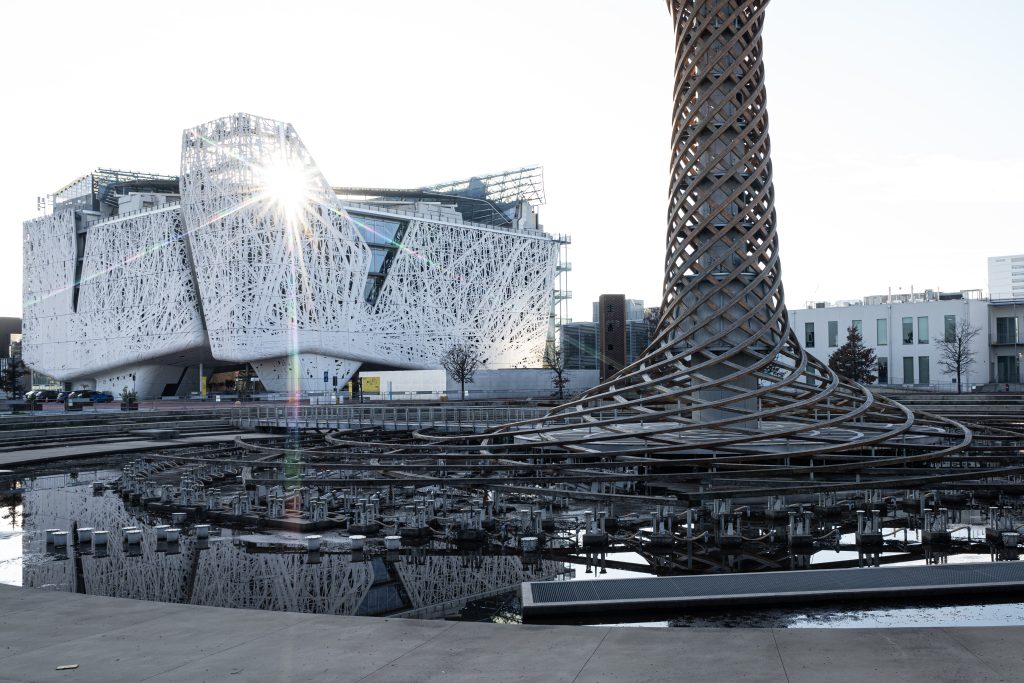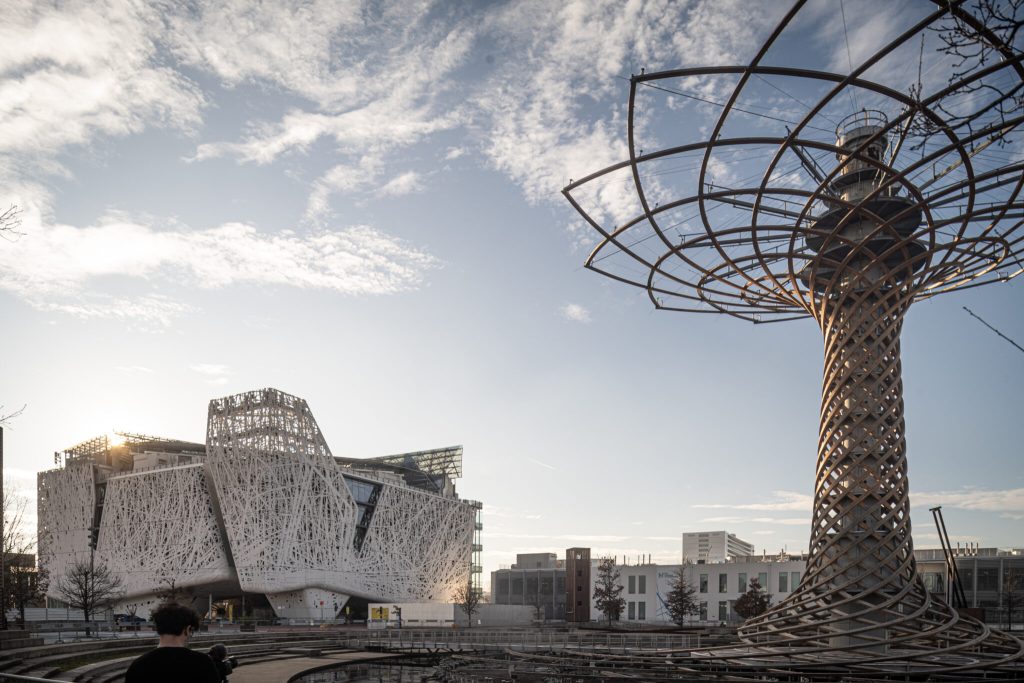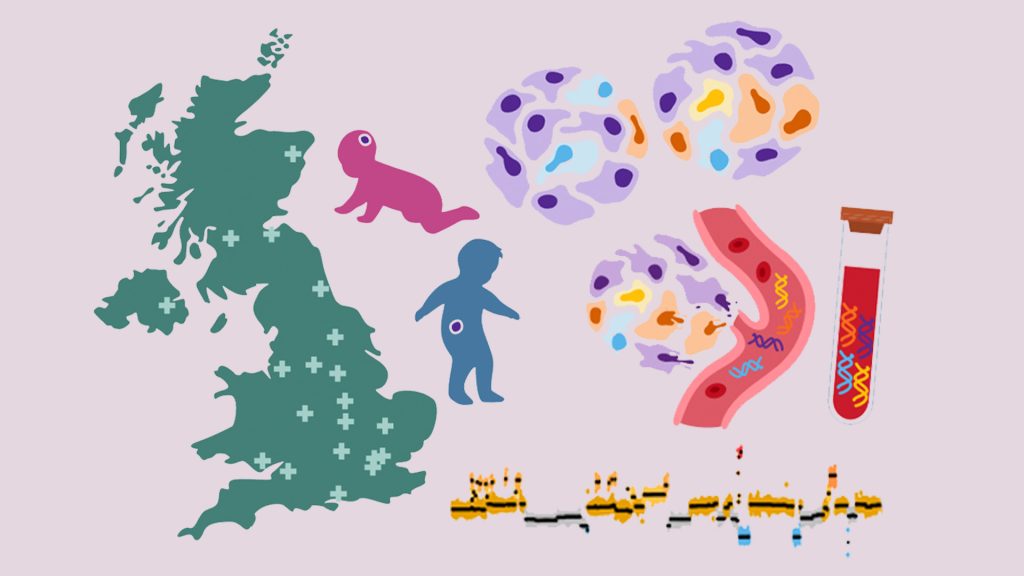First Marie Curie Fellowships for Human Technopole

Two Human Technopole researchers have been awarded the Marie Curie postdoctoral fellowship, one of the most prestigious fellowships for early career researchers: Dr. Carlos Jiménez and Dr. Albert Navarro Gallinad. Dr. Navarro Gallinad’s research project, presented today on National Women’s Health Day, will investigate the environmental risks faced by pregnant women by analysing almost 1,000,000 births in Lombardy over the last twelve years. Dr. Jiménez will study how the spatial arrangement of nuclear proteins contributes to optimal cell functioning.
In Lombardy, more than 4,280 premature births (<37 weeks gestation) were recorded in 2022[1]. Worldwide, premature birth is the leading cause of death for children under five years of age[2] , accounting for 900,000 neonatal deaths recorded each year. While the causes of premature birth are unclear, the environment is suspected to be the main driver. The ‘TinyTrend’ research project led by Dr. Albert Navarro Gallinad, health data scientist at the Human Technopole in Dr. Luisa Zuccolo’s research group, will study which environmental factors contribute to premature births to help inform future prevention policies.
Thanks to an existing collaboration with the Lombardy region, Dr. Albert Navarro Gallinad will have access to routinely collected health data over the last 12 years, including almost 1,000,000 births. This information will be combined with insights derived from Artificial Intelligence (AI) about changes in environmental policies. For example, the project will investigate how the frequency of premature births changes after introducing an effective policy to reduce traffic. This will allow us to join the dots about the role of air pollution in this pregnancy risk, using the change in policy as a natural experiment. Similarly, this innovative approach will allow Dr. Navarro Gallinad to discover new potential environmental causes of premature births. TinyTrend will represent a “best practice template” to follow by other Italian regions that is transferable to generate new insights into other diseases with a significant environmental component and unknown causes.
The project will also lead to the development of a website with an educational space where scientific results will be presented in different languages (Italian, English and Spanish), to reach a wide range of women. The website will also adhere to the United Nations 2030 Agenda for Sustainable Development and the Global Strategy for Women’s, Children’s and Adolescents’ Health developed by the World Health Organisation (WHO).
‘TinyTrend’ is one of the two projects, thanks to which Human Technopole was awarded the prestigious Marie Skłodowska-Curie actions postdoctoral fellowship (MSCA) from the European Commission. The second is the ‘PRUNE’ project developed by Dr. Carlos Jiménez, a postdoctoral fellow in Magda Bienko’s research group, which will study the spatial arrangement of the proteins in the cell nucleus and how it contributes to optimising the functioning of cells. Each fellowship was awarded for a total amount of €172,750.08 for a duration of two years.
The ‘PRUNE’ project by Dr. Carlos Jiménez, on the other hand, originates from the fact that the cell nucleus is a heterogeneous environment. Most nuclear components and functions are not evenly distributed within the nuclear space but follow a specific three-dimensional arrangement that contributes to physically separate processes that would otherwise be incompatible, thus optimising the distribution of tasks. For this reason, researchers believe that proteins, the main executors of biological functions, must be arranged in a particular spatial distribution inside the nucleus, which has significant consequences on vital cellular processes. To test this hypothesis, Dr. Carlos Jiménez will develop a new method for identifying and mapping the three-dimensional arrangement of all the proteins in the nucleus in different cell types, from stem cells to genetically modified cells, and the processes linked to them. In addition to being a further building block in the basic understanding of the cell, this knowledge may also provide tools for identifying new therapeutic targets for treating human diseases in the future.
Human Technopole Director Marino Zerial emphasises: “These prestigious scholarships obtained by our researchers confirm the need for and importance of investing in young people, especially in the scientific world, and once again confirm Human Technopole’s great commitment to its mission of improving people’s health and its role in training the next generations of scientists. The studies by Dr. Albert Navarro Gallinad and Dr. Carlos Jiménez will combine big data with artificial intelligence and three-dimensional mapping technologies of the human genome. In addition, these projects will be able to benefit from collaborations with other research groups and access to the technological platforms available at Human Technopole”.
[1] Ministry of Health, report ‘Certificate of Attendance at Childbirth (CeDAP). Analysis of the birth event – Year 2022’.
[2] WHO, ‘Born too soon: decade of action on preterm birth’ report




